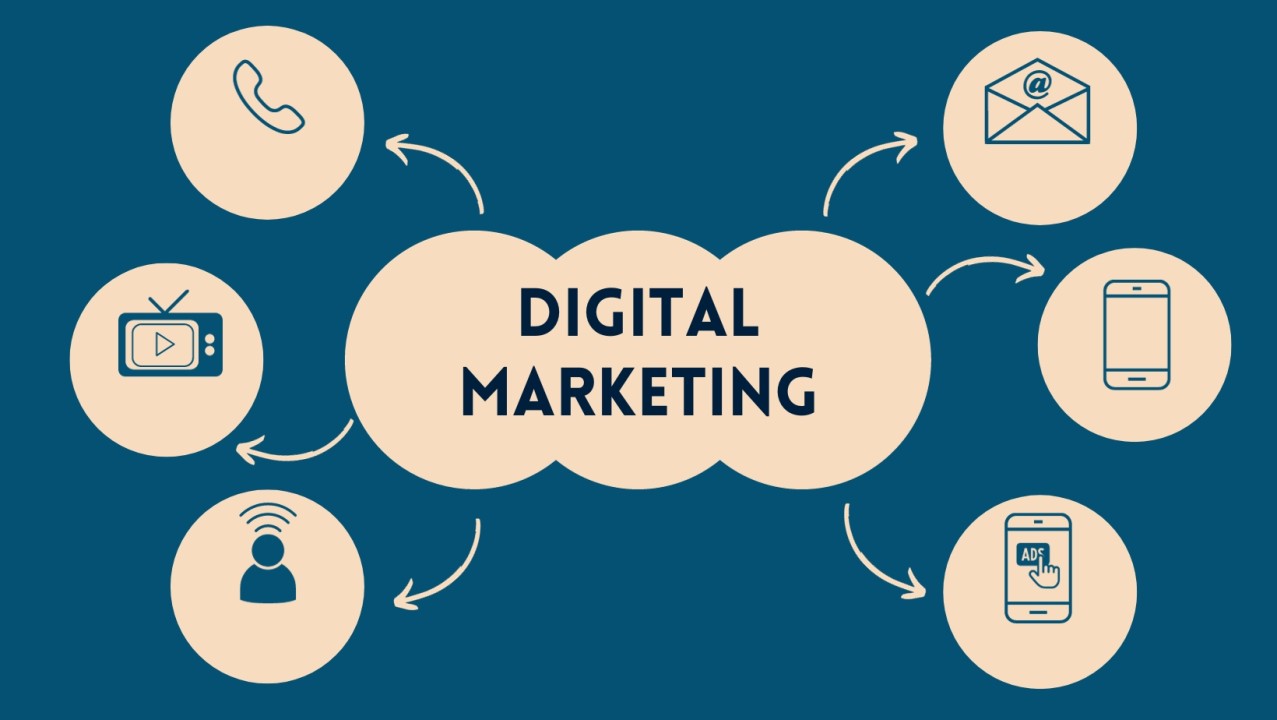In today’s fast-paced world, the realm of marketing has shifted dramatically towards the digital sphere. Businesses of all sizes are embracing digital marketing strategies to reach their target audience, increase brand visibility, and drive sales. Let’s delve into the world of digital marketing and explore its various components, strategies, advantages, and challenges.
What is Digital Marketing?
Digital marketing encompasses all marketing efforts that utilize electronic devices or the internet. It includes various online channels such as search engines, social media platforms, email, websites, and mobile apps to connect with current and prospective customers.
Importance of Digital Marketing
Digital marketing is crucial for businesses to stay competitive in the digital age. It allows companies to reach a global audience, engage with customers in real-time, and measure the effectiveness of their marketing campaigns with unparalleled accuracy.
Evolution of Digital Marketing
Digital marketing has evolved significantly over the years, from basic website advertising to sophisticated targeted campaigns powered by artificial intelligence and machine learning algorithms.
Components of Digital Marketing

Search Engine Optimization (SEO)
SEO involves optimizing a website to rank higher in search engine results pages, thereby increasing organic traffic and visibility.
Content Marketing
Content marketing focuses on creating and distributing valuable, relevant, and consistent content to attract and retain a clearly defined audience.
Social Media Marketing
Social media marketing utilizes social media platforms to connect with audiences, build brand awareness, and drive website traffic.
Email Marketing
Email marketing involves sending targeted messages to a specific group of recipients to promote products or services, nurture leads, and build customer relationships.
Pay-Per-Click (PPC) Advertising
PPC advertising allows businesses to place ads on search engines or websites and pay a fee each time a user clicks on the ad.
Influencer Marketing
Influencer marketing leverages individuals with a large following on social media to promote products or services to their audience.
Strategies for Effective Digital Marketing

Understanding Target Audience
Knowing your target audience’s demographics, interests, and online behavior is essential for crafting tailored marketing messages.
Creating Engaging Content
Compelling and relevant content is key to capturing audience attention and driving engagement across digital channels.
Leveraging Social Media Platforms
Each social media platform has its own unique features and audience demographics, so it’s crucial to tailor your content accordingly.
Implementing SEO Techniques
Optimizing your website for search engines improves its visibility and drives organic traffic, leading to increased conversions.
Utilizing Data Analytics
Analyzing data from digital marketing campaigns provides valuable insights into customer behavior, allowing businesses to refine their strategies for better results.
Advantages of Digital Marketing

Increased Brand Visibility
Digital marketing allows businesses to reach a larger audience and increase brand awareness through various online channels.
Enhanced Customer Engagement
Interacting with customers in real-time through social media, email, and other digital channels fosters stronger relationships and brand loyalty.
Cost-Effectiveness
Compared to traditional marketing methods, digital marketing offers a more cost-effective way to reach target audiences with measurable results.
Targeted Marketing
Digital marketing enables precise targeting based on demographics, interests, and online behavior, ensuring that marketing messages resonate with the right audience.
Challenges in Digital Marketing

Constantly Evolving Trends
The digital landscape is constantly changing, requiring businesses to stay agile and adapt to new technologies and trends.
Competition
With more businesses embracing digital marketing, competition for audience attention is fiercer than ever, necessitating innovative strategies to stand out.
Data Privacy Concerns
As digital marketing relies heavily on collecting and analyzing customer data, businesses must navigate privacy regulations and consumer concerns about data privacy and security.
Conclusion
Digital marketing has revolutionized the way businesses promote their products and services, offering unparalleled opportunities for reaching and engaging with customers. By understanding its various components, implementing effective strategies, and addressing challenges, businesses can harness the power of digital marketing to achieve their goals in today’s digital landscape.
FAQs (Frequently Asked Questions)
- What are the key components of a successful digital marketing strategy?
- A successful digital marketing strategy typically includes components such as SEO, content marketing, social media marketing, email marketing, PPC advertising, and influencer marketing.
- How can businesses measure the effectiveness of their digital marketing efforts?
- Businesses can measure the effectiveness of their digital marketing efforts through metrics such as website traffic, conversion rates, engagement levels on social media, email open rates, and return on investment (ROI).
- What role does content play in digital marketing?
- Content plays a crucial role in digital marketing as it helps businesses attract and engage their target audience, establish thought leadership, and drive conversions.
- How can businesses stay ahead of constantly evolving digital marketing trends?
- To stay ahead of evolving trends, businesses should continuously monitor industry developments, experiment with new technologies and strategies, and stay informed through industry publications and conferences.
- What are some best practices for addressing data privacy concerns in digital marketing?
- To address data privacy concerns, businesses should prioritize transparency in data collection and usage, obtain explicit consent from users before collecting their data, and comply with relevant data protection regulations such as GDPR and CCPA.


Leave a Reply